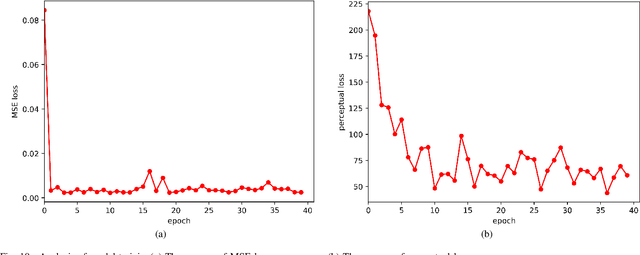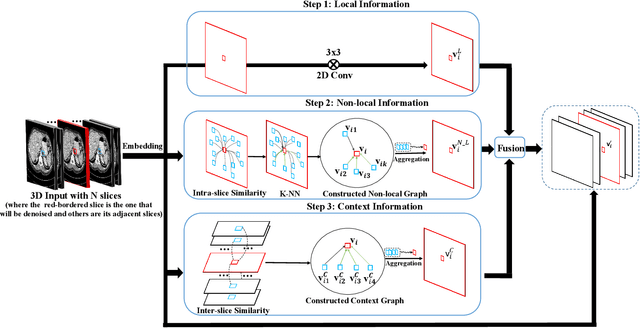Jiang Shen
RIDnet: Radiologist-Inspired Deep Neural Network for Low-dose CT Denoising
May 15, 2021



Abstract:Being low-level radiation exposure and less harmful to health, low-dose computed tomography (LDCT) has been widely adopted in the early screening of lung cancer and COVID-19. LDCT images inevitably suffer from the degradation problem caused by complex noises. It was reported that, compared with commercial iterative reconstruction methods, deep learning (DL)-based LDCT denoising methods using convolutional neural network (CNN) achieved competitive performance. Most existing DL-based methods focus on the local information extracted by CNN, while ignoring both explicit non-local and context information (which are leveraged by radiologists). To address this issue, we propose a novel deep learning model named radiologist-inspired deep denoising network (RIDnet) to imitate the workflow of a radiologist reading LDCT images. Concretely, the proposed model explicitly integrates all the local, non-local and context information rather than local information only. Our radiologist-inspired model is potentially favoured by radiologists as a familiar workflow. A double-blind reader study on a public clinical dataset shows that, compared with state-of-the-art methods, our proposed model achieves the most impressive performance in terms of the structural fidelity, the noise suppression and the overall score. As a physicians-inspired model, RIDnet gives a new research roadmap that takes into account the behavior of physicians when designing decision support tools for assisting clinical diagnosis. Models and code are available at https://github.com/tonyckc/RIDnet_demo.
 Add to Chrome
Add to Chrome Add to Firefox
Add to Firefox Add to Edge
Add to Edge